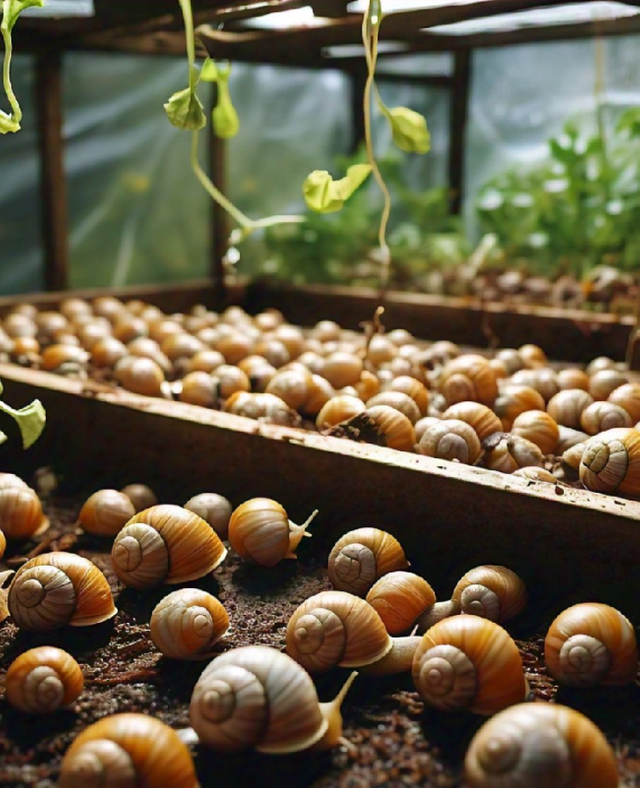Basic knowledge in Agriculture #6 - snail rearing
Heliculture, also known as snail farming or snail rearing, is a branch of livestock keeping in agriculture. Just as the name had been given out, this practice deals with rearing of the gastropod species, snails, with the aim of either eating or selling them later; it's also possible that some people rear them for fun.
Heliculturist, is a term or name used to address someone involved in snail rearing.

Source: flyermaker
There are various specie rearable, but below are few common ones:
- helix aspersa or the garden snail known for its soft flesh.
- archachatina marginata or the African giant snail, also remarkable for its flesh and shell.
- helix pomatia or the Roman snail known for distinctive taste and flavour of its flesh.
Benefits of snail rearing.
- Primary benefit of any or most agricultural products, snails included, is for consumption. Snails, enriched with protein, can be made into delicacies when fried or garnished with peppers and seasonings.
- For shell production. A distinctive feature of these aquatic animals is their shells, which is not useless. Shells can be collected from dead snails and used for crafts and designs. Shells were also used years ago and now for the production of musical instruments like flutes.
- Snail rearing serves as a means of employment. Heliculture is one of the investments one can actually start with low capital, till it blooms into something big. Rearing snails till they reach a certain size acceptable in the market, one could earn income after selling them in the market.
- For slime production. Slimes in snails are useful to them in their movement, also useful to men in certain areas. Slimes can be used for gum or gum production and also an ingredient in making skin care products.
Things to consider during snail rearing.
Either one is already a professional in it, or about to start, there are few things to always put into consideration when rearing snails.
- Feeding. Snails are herbivores, hence they should be fed with clean fruits and vegetables regularly. It is also advisable to support their meals with calcium supplements, vitamin D3 and minerals like iron.
- Housing. It is important to note that snails could be water loving animals. It is not necessary to keep them in a water logged area, but in a place cool enough and with a considerable amount of moisture. Keep your snails in a system with regulated temperature and ventilation.
Housing systems includes the intensive system where snails are kept in an enclosure with adequate ventilation and monitored feeding; the semi-intensive system where they are kept indoor (could be a small building) while also being fed; and lastly the extensive system, here the snails are kept at a certain place outdoor filled with vegetables. They can move around and feed themselves. - Health management. To keep your snails from dying or drying out in their shells, their health must be well monitored. This would also keep them in good shape. Their health management could be achieved by regular cleaning and disinfection; vaccination and parasite control.
Ways to make heliculture More practicable.
- Getting more information as a heliculturist.
- Availability of capital
- Good pests and diseases management
- Availability of snail friendly habitat
Here we go. Inviting:
@babynutria
@ahmeddemol
@anonymous-09
Welcome to steem-agro!
MODs Comment/Recommendation:
Thank you so much for sharing quality content post . But always remember to engage with other users through your commendable comments
Remember to always share your post on Twitter using these 3 main tags #steem #steemit $steem
